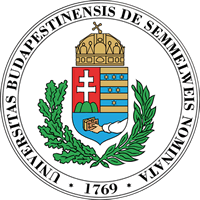About the Project
Infections and various immune-inflammation mediated conditions are characterized by the activation of the complement system. Antibodies (immune complexes) activate the classical pathway whereas repetitive carbohydrate structures give rise to the initiation of the lectin pathway. The activation state of the various complement pathways can individually and specifically be measured by levels of the generated specific split products or protein-protein complexes. There are several well known and widely used complement activation biomarkers currently in the market (for example sC5b-9 for the terminal pathway), but specific markers for the early classical- and early lectin pathways are still missing. C1 inhibitor, forming covalent linkage with active proteases of the classical and lectin pathway, is promising target for the development of such novel immunoassays. We already generated monoclonal antibodies against human C1 inhibitor, C1s and MASP-1, and started the selection of appropriate clones to set up sandwich immunoassays to measure C1 inhibitor-C1s, and C1 inhibitor-MASP-1 covalent complexes. The aim is to develop sensitive and specific assays appropriate for the quantitative measurement of the above complexes in human plasma and serum samples. Clinical studies will be organized by enrollment of patients with iatrogenic- (in-hospital acquired pneumonia and sepsis) and opportunistic (pulmonary tuberculosis) infections. As additional patient control group several conditions with classical and/or lectin pathway activation (immune-complex diseases, fungal infections) will also be included. If the newly developed assays turn out to be specific, and generate clinically meaningful results, commercialization (assay development at Hycult Biotech) will be done. External validation of the new Kits will be done in Medical University of Innsbruck using patient's samples with opportunistic infections.
General description of your individual PhD-schedule:
• Your main university will be Semmelweis University (Budapest, Hungary) with Prof. Prohaszka as supervisor.
• You will have a 6-months research secondment at Medical University of Innsbruck (Austria) with Prof. Würzner as supervisor, where you continue to scientifically work on your thesis project.
• You will have a further 6-months research secondment at Hycult Biotech (Uden, Netherlands) where you will develop commercial assays using generated mAbs.
• You will have a 1-month clinical training at Research Center Borstel Hospital (Borstel, Germany).
• You will have a 1-month entrepreneur training at Hycult Biotech.
• You will finally receive a PhD issued by Semmelweis University and Medical University of Innsbruck if you fulfil the respective requirements.
Application
Please visit www.corvos.eu for application and more information on the PhD program. You have to submit: Application Form (see www.corvos.eu), CV, Master/MD/Diploma document, Abstract of Master/MD/Diploma thesis. Selected candidates will be invited for a personal interview to Innsbruck on 03rd/04thJan or 09thJan2020.
Requirements:
We are looking for highly qualified and motivated aspiring PhD students from any nationality with an open-minded and very enterprising personality, capable of working in collaborative and integrated research groups. Ideal candidates should possess a good scientific drive and a strong motivation to succeed.
•You have a full study completing degree (Master, Magister, Diploma, MD) in medicine, natural sciences or related disciplines until March 2020
•You are an Early Stage Researcher (ESR) – you either just finished your studies, or you have worked less than 4 years as an employee in the biomedical sector after obtaining your degree
•You have to show academic excellence, scientific potential, flexibility, motivation and suitability for the research project
•You have the willingness to stay abroad for 3 years from your current residence and willingness to travel through Europe
•You comply with the mobility rule for Marie Sklodowska Curie ITN fellows – Researchers must not have resided or carried out their main activity (work, studies, etc.) in the country of the recruiting university for more than 12 months in the 3 years immediately before the recruitment date. This will be thouroughly checked.
Funding Notes
The Marie Sklodowska-Curie project CORVOS, for COmplement Regulation and Variations in Opportunistic infectionS, is funded as an Innovative Training Network (ITN) – European Joint Doctorate (EJD). Its focus lies on education of young scientists in the field of complement in opportunistic infections. This interdisciplinary doctoral program is supported by 10 European universities, 2 research institutes, 3 biomedical companies and 3 hospitals. The PhD students will have enhanced career perspectives in the academic and non-academic sectors through international, interdisciplinary and inter-sectoral mobility combined with an innovation-oriented mind-set. Visit www.corvos.eu to see all the benefits that you will have as CORVOS PhDstudent.

 Continue with Facebook
Continue with Facebook

